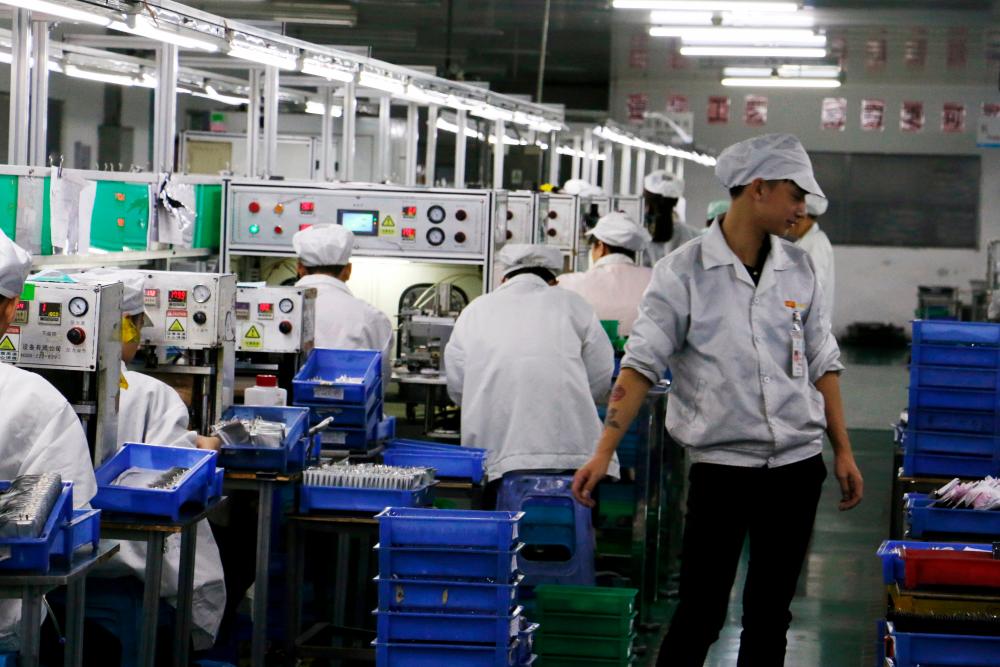BEIJING: China's producer prices fell at a slower pace in December, in signs of a modest recovery in manufacturing activity and suggesting Beijing's stimulus measures might have helped to steady the economy.
The producer price index (PPI), seen as a key indicator of corporate profitability, fell 0.5% from a year earlier, National Bureau of Statistics (NBS) data showed on Thursday. Analysts had expected factory-gate prices to fall 0.4% year-on-year, compared with a 1.4% drop in November.
The slower pace of decline in producer prices was in line with improving price components in recent factory surveys. Milder price deflation was partly supported by a recovery in petroleum, coal and other fuel processing industries, the NBS said in a statement accompanying the data.
For the whole of 2019, PPI was down 0.3% compared with a rise of 3.5% the previous year.
China's consumer price index (CPI) in December rose at a pace unchanged from November - an eight-year high of 4.5% - fuelled again by a surge in pork prices as African swine fever ravaged the country's hog herds.
However, core inflation - which excludes food and energy prices - remained modest.
"Inflation is becoming less of a constraint on policy loosening. This is because pork prices have been the main driver of higher CPI inflation in recent months and if they stabilise, the rise in year-over-year inflation due to base effects will be temporary," economists at Goldman Sachs said in a note before the data.
"As a result, policymakers likely adopted a 'watch as you go' way of policy making."
Core CPI for December grew 1.4% on-year, the same pace as the preceding month. For the full-year, China's CPI grew 2.9%, within Beijing's target of around 3% for the year. - Reuters









